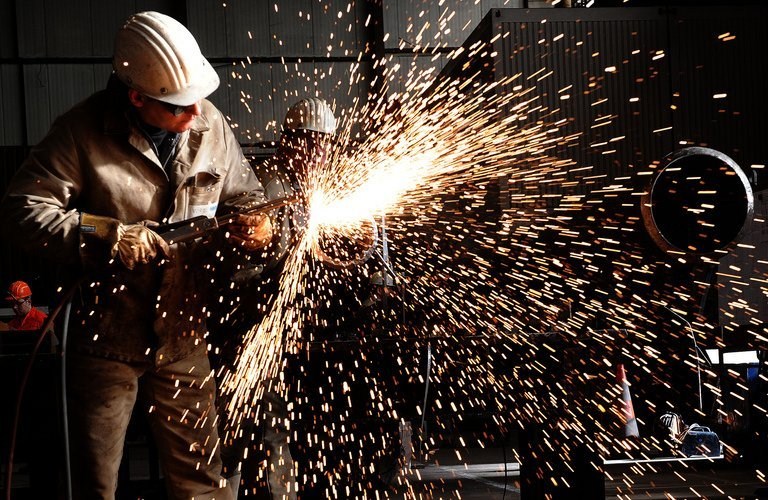Production from steel factories is expected increase by 100% following new measures announced by the Ministry of Industry, Director General of the Chamber of Metallurgical Industries in the Federation of Egyptian Industries (FEI) Mohamed Hanafi said.
Last week, Minister of Industry Tarek Qabil announced that the government will reduce the price of natural gas to steel and iron factories from $7 to $4.5 per million thermal units.
Steel production consists of two phases; the first converts the raw material into steel plate, which is a high gas-consuming process, and the second is the steel rolling phase, Hanafi explained to Daily News Egypt.
Factories started to import steel plate to offset low production due to the gas shortage, costing them $2bn, Hanafi said.
Some factories only operated with steel plate, and suffer under the high gas prices (from $1 to $7), which have negatively affected steel production, according to Hanafi.
Qabil said the decision came after extensive studies conducted by the government, in coordination with the Ministry of Petroleum.
The new decision will cost the state EGP 1.2bn; Hanafi said this cannot be considered a loss as “it will only decrease the state revenues from selling gas to factories”.
“In all cases, the government is selling gas at high prices compared to the international market and it is making a profit,” Hanafi said.
According to the minister, the move will save on foreign currency paid to import steel from abroad.
Qabil hoped the decision will contribute to restoring suspended factory operations, expecting that the export bill of steel will consequently increase to $600m, which draw $170m into the country in tax revenues.
Prices of gas supplies for factories increased in 2014 as part of a larger government plan to reduce energy subsidies.
Economics professor at Mansoura University Mokhtar Sherif explained that the government had two options: either to continue importing steel or to supply additional gas quantities to factories.
“Thus, it was better to lower gas prices so that steel factories can obtain additional gas quantities,” Sherif said.
Cement factories have also been suffering due to the low energy supplies following the 25 January Revolution, which prompted the government to allow them to operate with coal instead of natural gas beginning in April 2014. The move was vehemently opposed by the Ministry of Environment at the time.
According to Sherif, Egypt currently requires high production outputs from cement and steel factories to meet the requirements of giant construction and housing projects.
In a report published on 10 March, Naeem Analysis consultancy firm said the new measure is positive for leading steel producer Ezz Steel and its subsidiary Ezz Dekheila Steel, as it would “translate to both direct and indirect benefits”.
The report noted that the company has been in the red for the past year and a half as a result of lower gas supplies. The price of steel currently ranges between EGP 4,500 and 4,800 per tonne.
Daker Abdallah, a member of the Egyptian Businessmen’s Association and the Egyptian Federation for Construction and Building Contractors, said last week that he expects the price of steel will rise to EGP 6,000 per tonne by the end of June if the dollar value is not regulated in the informal market.
Fertiliser and ceramic plants, which export their products outside the country at world market prices, receive one million BTUs of gas at an average price of $3, with the highest price bracket being $6 per million BTU for cement plants, which sell their products above international prices.




